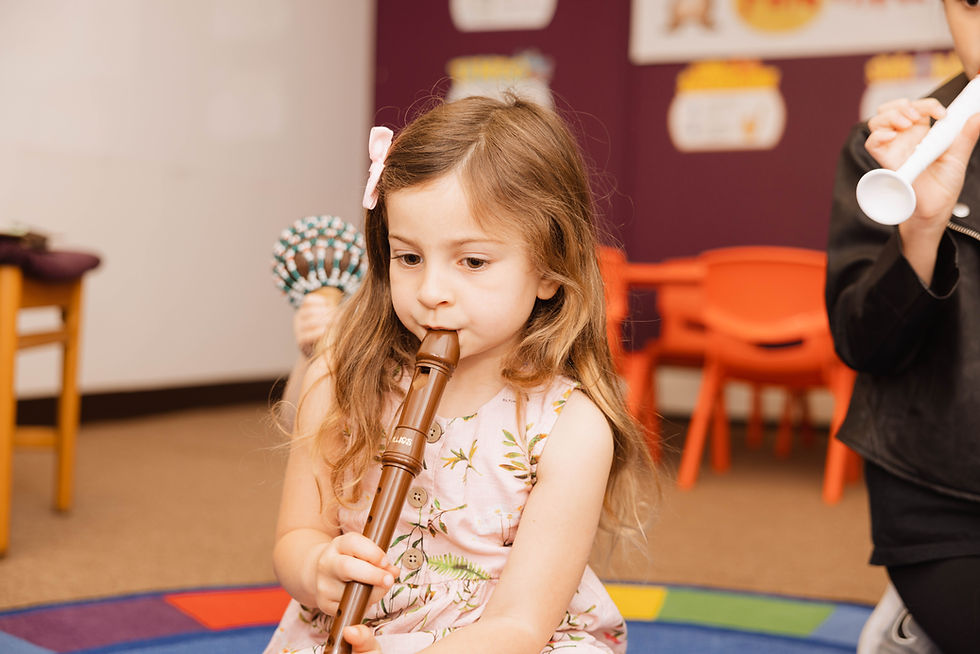The Surprising Mental Health Benefits of Music Lessons
- Nick Doak

- Oct 14, 2025
- 2 min read
West Chester Music Academy Blog

When most people think about music lessons, they picture scales, practice time, and recitals. But what if we told you that picking up an instrument could do far more than teach you music? It could actually boost your mental health?
At West Chester Music Academy, we see every day how learning music transforms lives, helping students of all ages feel calmer, happier, and more confident. Science agrees: the mental health benefits of playing an instrument are as real as they are remarkable.
Stress Relief in Every Note
In today’s fast-paced world, stress seems impossible to escape, but music provides a healthy, natural way to unwind. When you play an instrument, your mind and body slow down. Your breathing evens out, your focus narrows, and your brain releases dopamine, the same chemical responsible for feelings of pleasure and calm.
Even a short practice session can shift your mood and help melt away the stress of the day. Many adult students describe their practice time as their “mental reset”... a few peaceful minutes where the world gets quiet and they can simply be.
A Workout for the Brain
Playing music lights up multiple parts of the brain at once: memory, coordination, logic, and creativity. This full-brain engagement not only sharpens cognitive function but also helps build emotional resilience.
For adults, this can mean improved focus, better problem-solving, and even protection against age-related cognitive decline. For kids, it boosts learning, discipline, and self-control. Music is, quite literally, therapy for the brain.
Expressing What Words Can’t
Music has a unique ability to reach emotions that words sometimes can’t. For students of all ages, playing an instrument becomes a powerful outlet for feelings: joy, sadness, excitement, frustration, or anything in between.
When a child learns to channel their emotions into music, they gain emotional intelligence and self-awareness. For adults, it’s a safe, creative way to process life’s ups and downs. Music helps us feel, and more importantly, helps us heal.
Building Confidence and Connection
Music lessons aren’t just about learning alone, they’re about connection. Performing with others, collaborating with teachers, or simply sharing a song with family all foster belonging and confidence.
At West Chester Music Academy, we see shy students find their voices, anxious students discover calm, and adults rediscover a sense of joy they thought they’d lost. These emotional breakthroughs are the true magic of music education.
Final Note
Whether you’re 6 or 60, picking up an instrument can do wonders for your mind and heart. Music is more than a hobby. It’s a form of self-care, a stress reliever, and a lifelong companion that brings balance and joy to your life.




Comments